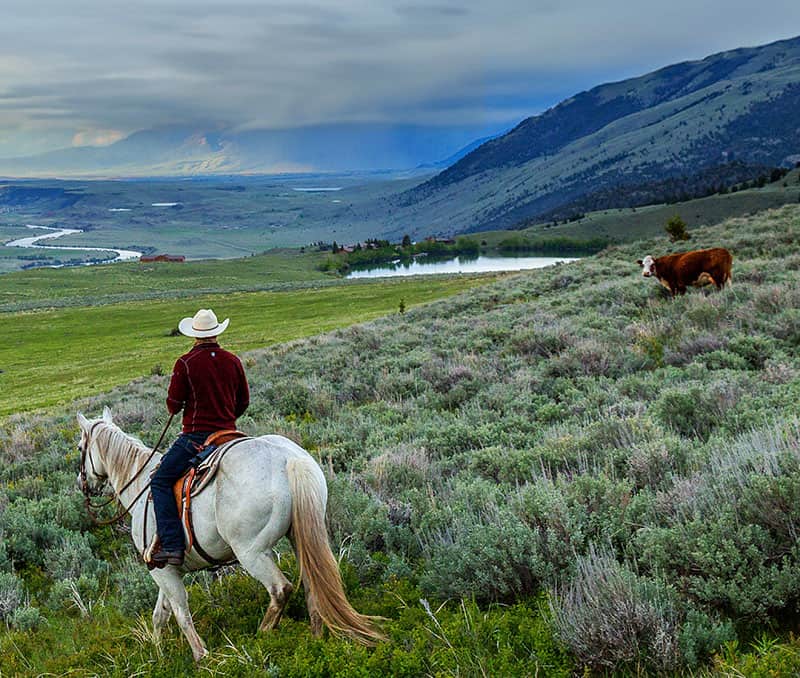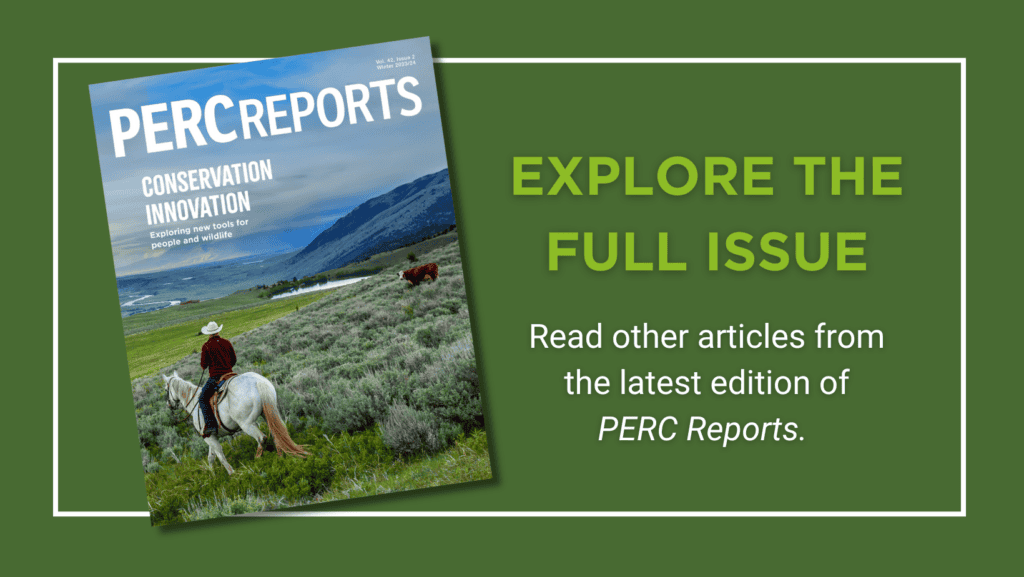
This special issue of PERC Reports features several pilot projects from PERC’s Conservation Innovation Lab. Read the full issue.
Conservation issues can be divisive, to say the least. Whether it’s the water wars of the Southwest, the timber wars of the Pacific Northwest, or the wolf wars of the Northern Rockies, environmental debates often devolve into zero-sum fights between competing groups. Battle lines fall along familiar divides—ranchers versus environmentalists, rural communities versus urbanites, developers versus wildlife advocates—with little or no room for negotiation or cooperation.
One reason for such controversy is the dominance of political environmentalism, in which competing groups rely on regulation or litigation to impose their preferred outcomes on others. Under this approach, opponents are more likely to demonize each other than to try to understand each others’ perspectives. Today, tensions are growing as polarization has deepened divisions and eroded trust in society, turning many environmental issues into culture war battlegrounds, amplified by a stark rural-urban divide.
For more than 40 years, PERC has advanced a different approach—one that harnesses markets and incentives to improve environmental outcomes by promoting cooperation instead of conflict. This approach encourages competing groups—even ones with vastly different values and preferences—to resolve their differences through positive-sum market exchange rather than through political or legal fights. For decades, PERC’s academic research has demonstrated the benefits of relying on markets instead of politics to achieve conservation outcomes.
These ideas are gaining traction. Last year, PERC launched its Conservation Law and Policy Center to advance policy reforms based on its research. Now, we are excited to announce a new effort—PERC’s Conservation Innovation Lab—to adapt our research into on-the-ground projects. As a fully integrated extension of PERC’s research and policy initiatives, the lab acts as a proof of concept for innovative market-based conservation solutions.
This special issue of PERC Reports features several pilot projects that are already underway, including: a privately funded “elk occupancy agreement” that is conserving habitat for migratory species, a disease compensation fund that is helping Yellowstone-area ranchers manage wildlife risks, a “pay for presence” program that is harnessing artificial intelligence to reward landowners that provide habitat for wildlife, a first-of-its-kind ranching agreement that is demonstrating how bears and cattle can coexist, and a “virtual fencing” pilot project that is transforming modern ranching while enhancing wildlife habitat.
In each case, these projects bring together groups who are typically at odds with one another to find common ground and develop mutually beneficial solutions. They also serve as testing grounds for new tools and models that can be scaled up and applied elsewhere. They allow us to test, analyze, and improve our ideas on the ground, gaining real-world feedback along the way. And they demonstrate a market-based alternative to government-run conservation programs, which are notoriously sluggish, inflexible, and risk averse.
Too often, conservation issues pit people against each other. But it doesn’t have to be that way. With the right approach, conservation can unite people, not divide them. PERC’s Conservation Innovation Lab aims to do just that, offering creative solutions that advance lasting conservation outcomes.




